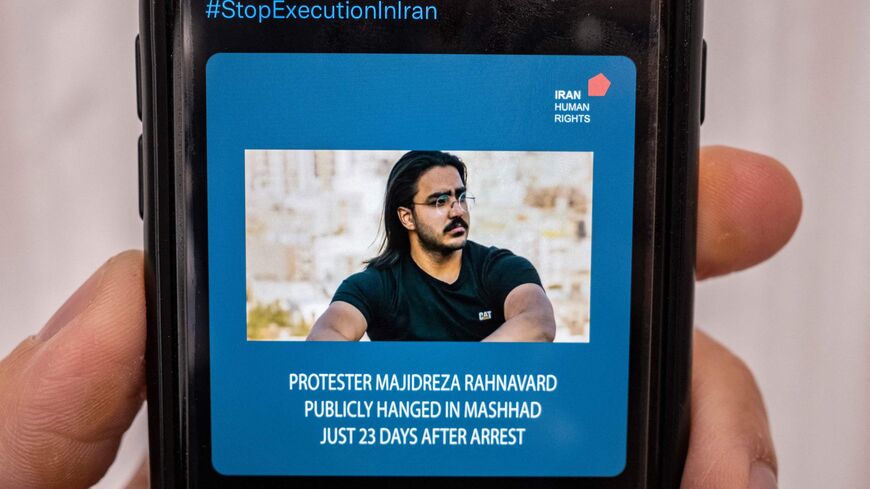Iran’s judiciary rejected pleas on Monday to delay sentences against protestors urging prosecutors to carry out verdicts without delay.
Since protests began in Iran three months ago, Iran's judiciary body has been one of the government’s most active branches in the suppression of the demonstrations.
Speaking at a meeting of the Supreme Judicial Council, Iran’s judiciary chief Gholam Hossein Mohseni Ejei issued a list of instructions for the country’s prosecutors. Topping the list of instructions was the carrying out of sentences of those arrested during the protests. “Prosecutors should not delay in carrying out the sentences that have been handed out,” Mohseni Ejei said. He added that his instructions were particularly related to the sentences of protesters, whom he referred to as “rioters” in his speech and as is the official government line.
Mohseni Ejei urged the prosecutors of the country to combat what he called “false and incomplete news” about the sentences of protesters. He said that domestic and foreign sources issue news about the cases with the intention of “creating the wrong mindset amongst the people.” He called on prosecutors to update news more routinely in order to prevent “anxiety amongst the public.”
One of the judiciary cases that has received a lot of public attention is the death sentence of Mohammad Mehid Karami. According to Mashallah Karami, Mohammad’s father, his son signed a forced confession. Karami’s family also claims that they have tried to contact his public defendant but have not been given even a public address for him. Karami is accused of being involved in the killing of Ruhollah Ajmian, a Basij member who was chased down by a group of individuals and beaten to death. Karami denies being involved in his death.
There are currently 11 individuals facing the death penalty over the protests. Another 15 individuals are facing sentences that could lead to the death penalty. Iran’s judiciary has given priority to cases involving attacks on security forces involved in putting down protests. Over 18,000 have been arrested so far, including well-known activists, journalists and celebrities.







